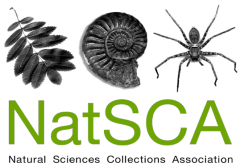Science Communicator (x3 positions)
The role of the Science Communicator is to develop and deliver creative, high quality science communication content, activities and events for a range of public audiences including adults, families and school students. Science Communication activities are delivered in a range of formats and locations (e.g. debates in the Attenborough Studio, on-gallery dialogues with scientists, digital bite-size video, outreach to schools, and through the annual Science Uncovered event.) Science Communicators work collaboratively with colleagues in different teams across the Museum including Science, Public Engagement, Visitor Engagement and Learning & Outreach to ensure there is a skilled and professional interaction between scientists and public audiences, encouraging questions, dialogue and debate. The role includes the requirement to work regular evenings and weekends.
The role sits within the Content Team and reports to the Science Communication Manager.
Role competences:
BEFORE beginning your application - Please read the section below about the ‘Online Application Process’ carefully.
If you wish to be considered for this role you will need to address each of the following competences in the ‘other information’ section of your online application:
1. A first degree in natural sciences or equivalent experience, and a demonstrable interest and enthusiasm for the natural world
2. MSc in Science Communication, or equivalent knowledge and experience of best practice in this area
3. Extensive experience of designing and delivering face-to-face science communication for the public in a museum, science centre or similar.
4. Proven experience of targeting or adapting science communication activities or events to different audiences and experience levels, including adults, families and school students
5. Experience of planning and delivering engaging science communication content in digital formats (e.g. bite-size content, features)
6. Substantial experience of providing an interface between scientists and members of the public, developing positive and effective working relationships
7. Proven experience of providing advice or training to scientists in science communication or other public engagement activities
8. Demonstrable strong organisational skills and attention to detail
9. Excellent knowledge and experience of using PowerPoint and Microsoft Office packages
10. A track record as an excellent team player, with the proven ability to develop and maintain effective and positive working relationships with colleagues in different teams
11. Demonstrable experience of prioritising and delivering workloads across a number of different concurrent projects, ensuring deadlines are met
12. Excellent verbal and written communication skills across a range of formats (e.g. face-to-face presentations, creating written listings for Museum events)
